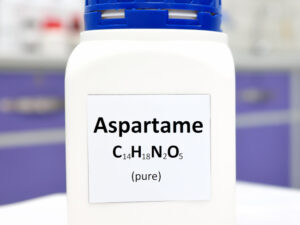Description
Coconut Sugar: The Sweet Truth About This Popular Sweetener
Coconut sugar has been steadily gaining popularity as a natural alternative to refined white sugar. From health food stores to mainstream supermarkets, it’s touted as a more nutritious and lower-glycemic option for sweetening your beverages and baked goods. But is coconut sugar truly the health halo it’s often portrayed to be, or is it just another type of sugar in disguise? Let’s delve into the sweet truth and explore everything you need to know about coconut sugar.
What is Coconut Sugar?
Coconut sugar, also known as coconut palm sugar, is derived from the sap of the coconut palm flower. The sap is harvested, heated to evaporate the water, and then crystallized into granules. This process is often marketed as being more sustainable than traditional sugar production, as it doesn’t require the felling of the entire coconut tree.
Nutritional Profile: A Closer Look
While often touted as a nutrient-rich sweetener, it’s important to understand the nutritional reality. Coconut sugar does contain trace amounts of minerals like iron, zinc, potassium, and short-chain fatty acids, as well as antioxidants and inulin, a type of soluble fiber that can act as a prebiotic. However, the amounts are relatively small and contribute little to your overall daily nutrient intake.
Here’s a breakdown of the approximate nutritional content per teaspoon (4 grams) of coconut sugar:
- Calories: 15
- Carbohydrates: 4 grams (primarily sucrose)
- Glycemic Index (GI): Estimated to be around 35-54 (though this can vary)
The Glycemic Index (GI) Factor
One of the primary reasons coconut sugar is favored is its lower GI compared to refined white sugar (GI of around 60-65). The GI measures how quickly a food raises blood sugar levels. Foods with a lower GI are digested and absorbed more slowly, leading to a more gradual rise in blood sugar. However, it’s important to note that the GI of coconut sugar can vary depending on factors like processing methods and the specific coconut palm.
The Truth About Fructose
Despite popular belief, coconut sugar is not fructose-free. It’s primarily composed of sucrose, which is a disaccharide made up of glucose and fructose. Therefore, individuals with fructose intolerance or those following a low-fructose diet should be mindful of their coconut sugar consumption.
Potential Benefits of Coconut Sugar
- Trace Minerals: It contains small amounts of minerals like iron, zinc, and potassium.
- Inulin Content: Inulin is a soluble fiber that acts as a prebiotic, promoting gut health.
- Lower GI (potentially): May lead to a slower and more gradual rise in blood sugar compared to refined sugar (though this can vary).
The Drawbacks of Coconut Sugar
- High in Calories: Contains a similar number of calories as refined sugar.
- High in Sugar: Primarily composed of sucrose, which breaks down into glucose and fructose.
- Limited Nutritional Value: The trace minerals present are in small amounts and don’t make a significant contribution to overall health.
- Variable GI: The glycemic index can vary depending on production factors.
- Marketing Hype: Often marketed as a “healthier” option, which can lead to overconsumption.
How to Use Coconut Sugar
Coconut sugar can be used as a 1:1 substitute for refined sugar in most recipes. It has a slightly caramel-like flavor, which can add a unique taste to your dishes and beverages. Use it in:
- Coffee and tea
- Baking recipes
- Smoothies
- Oatmeal
- Marinades and sauces
The Bottom Line: Moderation is Key
While coconut sugar may offer some minor nutritional advantages over refined white sugar, it’s still a source of added sugar and should be consumed in moderation. It’s crucial to remember that all forms of added sugar contribute to excess calorie intake and can potentially lead to health problems like weight gain, type 2 diabetes, and heart disease if consumed in large quantities.
Instead of focusing on finding the “healthiest” sugar, prioritize limiting your overall intake of added sugars from all sources. Focus on whole, unprocessed foods and naturally sweeten your dishes with fruits whenever possible.
In conclusion, coconut sugar can be a slightly more palatable alternative to refined sugar due to its trace mineral content and potentially lower GI. However, it’s not a health food. Enjoy it in moderation and be mindful of your overall sugar intake for optimal health.















Reviews
There are no reviews yet.